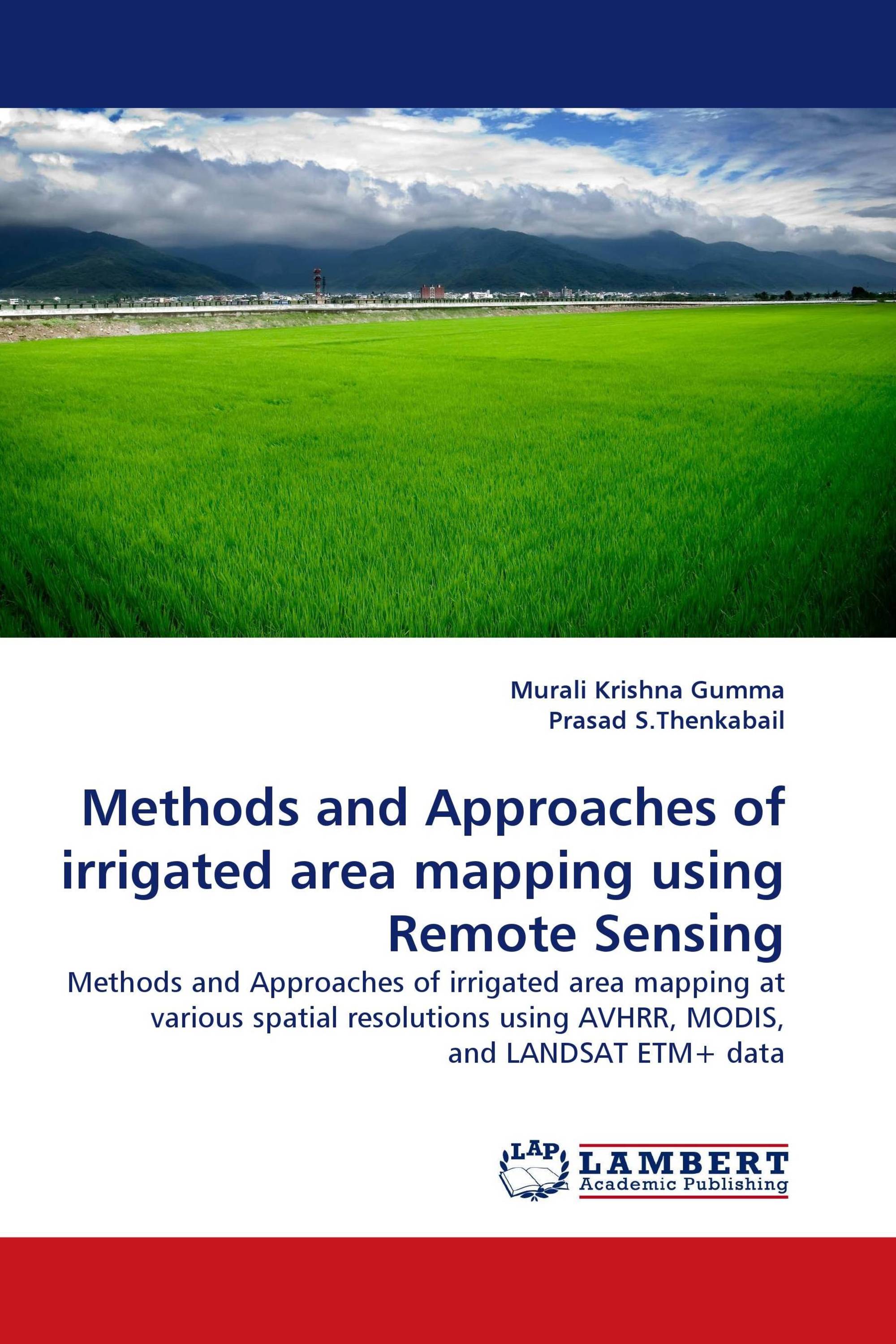Methods and Approaches of irrigated area mapping using Remote Sensing
Methods and Approaches of irrigated area mapping at various spatial resolutions using AVHRR, MODIS, and LANDSAT ETM+ data
LAP Lambert Academic Publishing ( 2011-05-09 )
€ 59,00
Methods and approaches of mapping irrigated areas at different resolutions using remote sensing data. Irrigated areas were mapped using: (a) AVHRR pathfinder 10-km data, (b) MODIS 500-m (c) MODIS 250-m and (d) Landsat 30-m data. The study was conducted in the Krishna River, India using satellite sensor data for nominal year 2000. The methods analyzing multiple sensors data, time-series and consisted of image segmentation approaches using SRTM data, creation of mega-file data cube, spectral matching techniques, ideal spectra data bank creation, class spectral generation, 2 dimensional brightness-greenness wetness (BGW) plot, space time-spiral curves, comprehensive protocols for class identification and labeling, resolving the mixed classes, calculation of sub-pixel areas (SPAs), and fuzzy classification accuracy assessments. The class identification protocols involved matching class spectra with ideal spectra to group classes, use of extensive ground truth data, innovative use of very high resolution Google Earth Data, and secondary data. The results clearly showed that finer the resolution greater was the irrigated areas.
Book Details: |
|
|
ISBN-13: |
978-3-8443-1099-3 |
|
ISBN-10: |
3844310991 |
|
EAN: |
9783844310993 |
|
Book language: |
English |
|
By (author) : |
Murali Krishna Gumma |
|
Number of pages: |
156 |
|
Published on: |
2011-05-09 |
|
Category: |
Agriculture, horticulture, forestry, fishery, nutrition |




